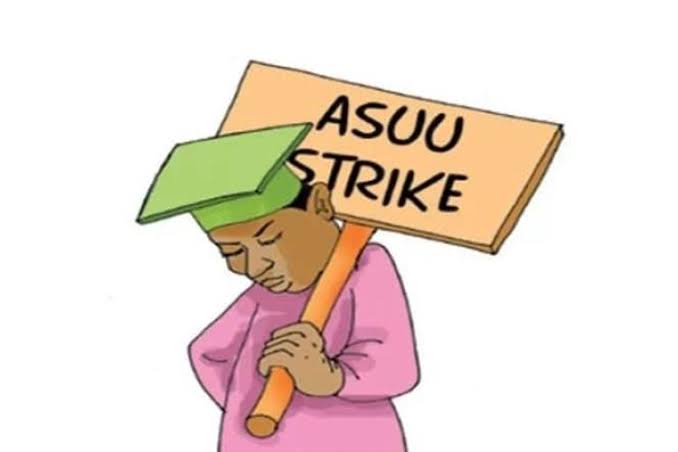Academic activities across Nigeria’s public universities have been brought to a halt yet again, as the Academic Staff Union of Universities (ASUU) commenced a two-week warning strike starting today, Monday, October 13, 2025.
This move follows the expiration of a 14-day ultimatum issued to the Federal Government, which failed to meet key demands raised by the union. Speaking at a press conference at the University of Abuja on Sunday, ASUU President Prof. Chris Piwuna said the decision to withdraw services was taken after “no tangible progress” was made.
“There is nothing on the ground to stop the implementation of the NEC’s resolution. All branches of ASUU are directed to commence the strike from midnight, and it shall be total and comprehensive,” he said.
What’s Fueling This Fresh Strike?
At the heart of ASUU’s frustration is the longstanding 2009 FGN-ASUU agreement, which the union insists remains largely unimplemented. The issues have piled up over the years: from withheld salaries, to poor university funding, to the victimisation of union members, and non-payment of allowances.
Some of ASUU’s key demands include:
- Release of withheld three and a half months’ salaries
- Full implementation of the renegotiated 2009 agreement
- Payment of promotion and salary arrears (some dating back over 4 years)
- Revitalisation funds for dilapidated public universities
- End to victimisation of union leaders, especially at LASU, KSU, and FUTO
- Release of third-party deductions like cooperative contributions and union dues
Last week, Minister of Education, Dr. Tunji Alausa, said the Tinubu-led administration had released N50 billion for Earned Academic Allowances and earmarked N150 billion in the 2025 budget for revitalisation.
But ASUU rejected the latest proposal from government negotiators, calling it a “hurriedly packaged document” that failed to reflect the recommendations of the Yayale Ahmed renegotiation committee.
Prof. Piwuna added that ASUU will soon present its own counter-proposal to the government, stating:
“What the government presented was a total departure from our earlier engagements. It was provocative and incapable of dousing the rising tension across campuses.”
Sources within the Education Ministry claimed the government reached out to ASUU for a last-minute resolution, but the union refused to engage.
“The minister made efforts to reach out, but ASUU leadership declined calls,” one official told Drum Africa.
No-Work-No-Pay Looms, NANS Reacts
In a statement issued late Sunday, the Federal Ministry of Education said it may apply the “no work, no pay” policy if academic activities remain disrupted.
The National Association of Nigerian Students (NANS) has also waded into the issue. Adejuwon Emmanuel, NANS Assistant Secretary-General, said the strike, though understandable, would further hurt millions of students who’ve already endured repeated disruptions.
“We call on the Federal Government to show sincerity and urgency. We also appeal to ASUU to explore other non-disruptive means of engagement,” he said.
ASUP Avoids Strike – For Now
In contrast, the Academic Staff Union of Polytechnics (ASUP) has decided to hold off on its own strike for now. After giving the government a 21-day ultimatum, ASUP said it noted measurable progress on issues like Peculiar Academic Allowance and 2025 NEEDS Assessment funding.
ASUP has now given a six-week window for further action – hinting that the government’s sincerity, or lack thereof, will determine what happens next.
What Lies Ahead?
This fresh ASUU strike may be tagged a “warning” – but with familiar patterns and deep-seated issues resurfacing, many fear this could spiral into a full-blown academic shutdown if talks fail once again.
For students, lecturers, and parents, it’s déjà vu. And unless both parties return to genuine, transparent negotiation, Nigeria’s university system could be heading for another prolonged blackout.
